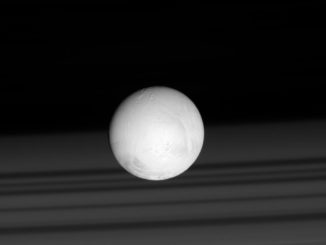
Saturn

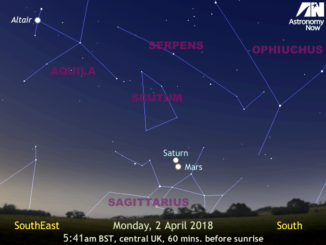
See the Red Planet, Saturn and Moon get close in the dawn sky
Early risers will already be aware that there’s currently a lot of planetary activity in the morning sky, but at dawn in Western Europe on Monday, 2 April, Mars and Saturn will be just 1¼ degrees apart and seen in the same field of view of telescopes at 30x magnification. The waning Moon is close by on the mornings of 7 & 8 April too.
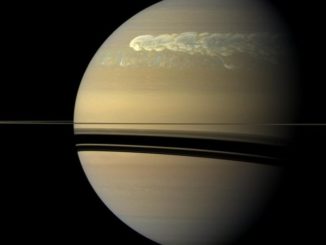
Saturn’s ‘Great Northern Storm’ still an awesome sight to behold
For reasons not yet understood, Saturn seems to store energy in its atmosphere over decades before suddenly releasing it in massive lightning storms that affect the ringed planet’s atmosphere across enormous distances. The Great Northern Storm of 2010/11 circled Saturn like a snake eating its tail, persisting for months before dissipating.
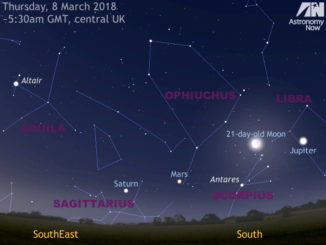
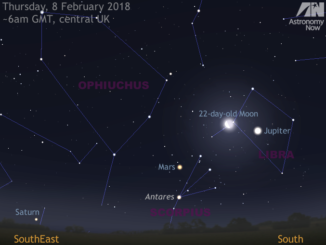
See the Moon’s dawn encounters with Jupiter, Mars and Saturn, 7–11 February
Set your alarm for 6am GMT if you wish to see three naked-eye planets in the UK dawn sky this week. Find a location that offers an unobstructed view of the horizon from southeast to south and let the waning Moon be your guide to locating Jupiter, Mars and Saturn on successive mornings from 7 to 11 February.
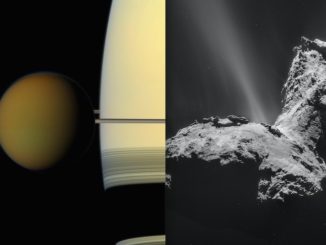
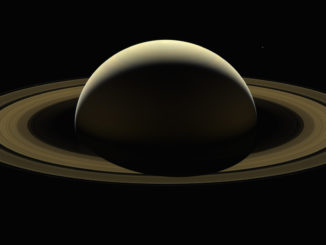
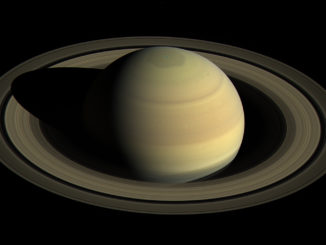

Intense storms batter Saturn’s largest moon, scientists report
Titan, the largest of Saturn’s more than 60 moons, has surprisingly intense rainstorms, according to research by a team of UCLA planetary scientists and geologists. Although the storms are relatively rare — they occur less than once per Titan year, which is 29 and a half Earth years — they occur much more frequently than the scientists expected.
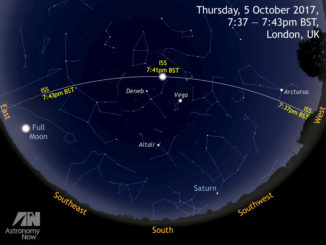
See the International Space Station pass overhead from the UK tonight
Urban dwellers may resign themselves to spotting the Moon, planets and the brightest stars with the unaided eye on a clear night, but every so often a bright satellite will catch your attention as it glides silently across the sky. The brightest is the 400-tonne International Space Station (ISS) whose orbit carries it directly overhead as seen from the British Isles and parts of Western Europe tonight.
